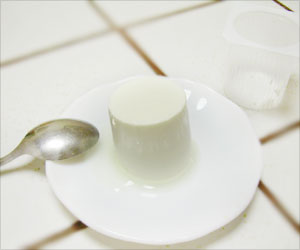Highlights
- Until recently, foods rich in saturated and trans-fat were considered to increase the level of LDL cholesterol thus contributing to heart diseases.
- A recent study has shown that daily consumption of full-fat cheese did not increase LDL level, blood sugar or triglycerides levels.
- It has shown to increase the level of HDL or good cholesterol that provides protection against coronary heart diseases and other metabolic disorders.
- HDL cholesterol scavenges the bad cholesterol from the bloodstream and takes it to the liver where it is broken down and eliminated from the body.
Cholesterol comes from two sources-body and from food. In the body, cholesterol is synthesized by the liver and is needed for making certain hormones, vitamin D and substances that aid in digestion. Cholesterol derived from food is mainly through animal products like meat, poultry and dairy products.
Since cholesterol cannot be dissolved in the blood, it is transported through the bloodstream in small packages called lipoproteins. Lipoprotein is made up of fat on the inside and protein on the outside. There are two types of proteins:
- Low-Density Lipoprotein or LDL Cholesterol- It is considered as the ’bad cholesterol’ because it contributed to the formation of thick, hard deposits inside the arteries called plaques. These plaques clog the arteries making them less flexible leading to atherosclerosis. Plaques break open to form clots which narrow the arteries and reduce blood supply to the heart, leading to heart attacks and stroke.
- High-Density Lipoprotein or the HDL Cholesterol- This is the ‘good’ cholesterol as it acts as a scavenger by reducing the level of LDL. It carries the LDL cholesterol from the arteries to the liver from where it is broken down and removed from the body. High levels of HDL has a protective effect on the heart and low levels have shown to increase the risk of heart diseases and stroke.
Statistics
In the United States, In 2011, cardiovascular diseases has claimed around 787,000 lives. Coronary heart disease is the most common type of heart disease that killed 365,000 people in 2014.
According to the latest statistics conducted on the World Heart Day in 2015, there are about 30 million heart patients in India and around two lakh heart surgeries are being performed annually.
Regular-fat cheese is rich in saturated fats. Dietary regulations in many countries warn people of the ill-effects of consuming full cream milk and regular fat cheese. But the recent study conducted by researchers that was published in the American Journal of Clinical Nutrition prove otherwise.
For the study 139 participants were recruited and divided into three groups. One group was given 80g full-fat cheese, the second group was given 80g of low-fat cheese and the third group was the no-cheese, carbohydrate control group who were given bread and jam.
They were then monitored for 12 weeks.
The results showed that the participants in the first group who consumed full-fat cheese showed no change in their LDL levels, insulin, blood sugar or triglyceride levels. Neither had it altered their blood pressure levels nor made them obese.
On the other hand, researchers found that full-fat cheese had increased their levels of “good” cholesterol. Thus they concluded that eating cheese provides protection against cardiovascular and metabolic diseases.
Since cheese is rich in saturated fats and sodium it is always advisable to enjoy it in moderation.
Other Benefits of Cheese
- It is good for the teeth as it reduces the count of cavity causing yeast by increasing the level of pH in the mouth.
- It helps to balance the gut flora as they are packed with probiotics.
- It is rich in calcium, which promotes bone health and prevents osteoporosis
- It is rich in vitamins including vitamin D, that helps in the distribution of calcium in the body and vitamin B12 that is important for function of the nervous system.
- It has conjugated linoleic acids and sphingolipids that may play a protective role against cancer.
- Cheese can help in sleep. It has an amino acid called tryptophan which lowers stress and improves sleep.
- It is a good source of proteins especially for vegetarians. Majority of the proteins in cheese belong to a family of milk proteins called casein this helps to lower blood pressure and increases absorption of minerals from the digestive tract.
- It is rich in mono-unsaturated fatty acids. These fatty acids are known to increase the levels of ‘good’ cholesterol that are beneficial for heart health.
- The trans-fat present in cheese is called ruminant trans-fat that promotes weight loss in overweight individuals, when eaten in moderation.
- What Is Cholesterol? - (http://www.nhlbi.nih.gov/health/health-topics/topics/hbc)
- About Cholesterol - (http://www.heart.org/HEARTORG/Conditions/Cholesterol/AboutCholesterol/About-Cholesterol_UCM_001220_Article.jsp#.V-QEoCh97IV)
- Experts say CHEESE is the key to a healthy heart - (http://www.express.co.uk/life-style/diets/713121/Why-eating-cheese-is-good-for-health-cardiovascular-disease-research-university-copenhagen)
- Eating cheese could be the key to a healthy heart, say scientists - (http://www.standard.co.uk/lifestyle/health/eating-cheese-could-be-the-key-to-a-healthy-heart-say-scientists-a3350541.html)
- Scientists reckon we need to eat more cheese so we’ll see you down the dairy aisle - (http://metro.co.uk/2016/09/21/scientists-reckon-we-need-to-eat-more-cheese-so-well-see-you-down-the-dairy-aisle-6142073/)
- High intake of regular-fat cheese compared with reduced-fat cheese does not affect LDL cholesterol or risk markers of the metabolic syndrome: a randomized controlled trial - (http://ajcn.nutrition.org/content/early/2016/08/23/ajcn.116.134932.abstract)
- Heart Disease: Scope and Impact - (https://www.theheartfoundation.org/heart-disease-facts/heart-disease-statistics/)















